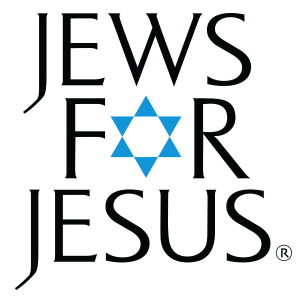Countdown to the Jewish New Year
by Rob Berman and Michael Sischy, Jews for Jesus South Africa
Remembering Not to Forget
A journey from Tisha B’Av to the Feast of Trumpets
We are currently in a season of remembrance in the Jewish calendar. Our people have just commemorated Tisha B’Av: the day where we remember the destruction of the two Jerusalem Temples – both destroyed on the same day in history. We remember the destruction but also the message of hope and a story of beauty from ashes. So, as we look ahead to Rosh Hashanah, the Feast of Trumpets and the Jewish new year, we have a choice to make and a warning to heed.
There are seven weeks between these two dates, and in that time, we read eight Torah portions – all from the book of Deuteronomy. The corresponding readings from the Writings and Prophets (the Haftarah) come from the prophet Isaiah. As we survey these Scriptures, we start to see some striking similarities between the passages. In addition, we see the same message from yet another prophet, John the Immerser, given hundreds of years later.
This message spanned thousands of years and many generations: a mix of a warning, a coming judgement, a call to repentance and a promise of hope. Moses first gave this message just before Joshua led the nation of Israel into the promised land. In his final address, Moses pleaded with Israel, urging them to remember God’s love for them and that He redeemed them from slavery in Egypt. God delivered them so that they would be free to love Him back.
However, Moses knew the people and that they were stubborn and quick to forget. He knew that, just like their fathers, they would abuse their freedom from Egyptian slavery and soon submit themselves to another form of slavery: lusting after and serving foreign gods. Moses’ warning was that the problem did not lie outside the people but inside them. He knew that a new heart was needed, one where God’s righteousness could dwell.
Moses spoke of the antidote to their stubbornness as a circumcised heart (Deuteronomy 10:12-17). The prophet Jeremiah – who warned of the coming destruction of Jerusalem and the Temple – later spoke of God’s promise of a new covenant where He would write His teachings of righteousness on our hearts. At the last supper, Jesus spoke of this new covenant being ushered in through the sacrifice of His body and blood.
However, by the time of Isaiah, our people had completely forgotten Moses’ words, and Isaiah had to remind them of that message. The Lord gave him a vision concerning Judah and Jerusalem, and at the heart of this vision was the reminder that nothing had changed. Our people had forgotten – and they would face the consequences of their rebellion in the Babylonian exile. At Tisha B’Av, we mourn the loss of the Temple. But perhaps there should be mourning over ignoring the Lord’s warning and offer, as Tisha B’Av is the evidence and the result thereof.
What was this offer the Lord made? Through Moses, it was: I have set before you a choice of life and death (Deuteronomy 30:15), and through Isaiah, it was: come and let us reason together; if you are willing and obedient, you will receive forgiveness of your sins and a good life in the good land (Isaiah 1:18-20).
Centuries later, our people would again receive the same message. John the Immerser gave a warning of a coming judgement, a call to repentance and a promise of hope. His message was very simple, ‘Repent, for the Kingdom of heaven is at hand’ (Matthew 3:2). He drew a large following and even caught the attention of the religious authorities who governed the Temple in Jerusalem. His purpose was not to draw people to himself but to prepare them for the One to come: the Messiah.
How then are we to circumcise our hearts? As we survey this journey from Tisha B’Av to Rosh Hashanah, we discover that something is missing. In the Haftarah, there are fifteen missing verses (Isaiah 52:13–53:12) that change everything – they speak of the Lamb who takes away the sin of the world.
John understood this as he submerged people in the water as a baptism of repentance. However, this external washing could not wash away the sin of the people or change their hearts. This washing merely signified they were willing to surrender to the One who could give them a new heart.
It starts with repentance (literally: turning back), and then a payment is required. When Messiah died, He made this payment in full. Without the correct payment, there can be no completion of the process of repentance. Repentance without payment is an incomplete transaction, and we stay dead in our transgressions, separated from God. Nevertheless, the offer still stands.
Come now, and let us reason together, says the LORD, though your sins are like scarlet, they shall be as white as snow; though they are red like crimson, they shall be as wool.
The societal outcasts recognised the generosity of heaven in the offer John brought, and they ran to receive it with open arms. Sadly, many of the religious authorities stood aloof and missed God’s purposes for their lives. They forgot God’s word, did not heed the warning, missed the Lamb of God who takes away the sin of the world and, finally, did not receive a circumcised heart.
God’s offer – for Jew and Gentile alike – still stands to this day, ‘Come now, and let us reason together’. He invites us to choose life. He cannot make that choice for us, but He certainly offers it. So, let’s join hands as Jews and Gentiles who have received this grace, and let’s continue to offer it to our Jewish people and the nations.
Together, let’s choose to remember; let’s choose life.

